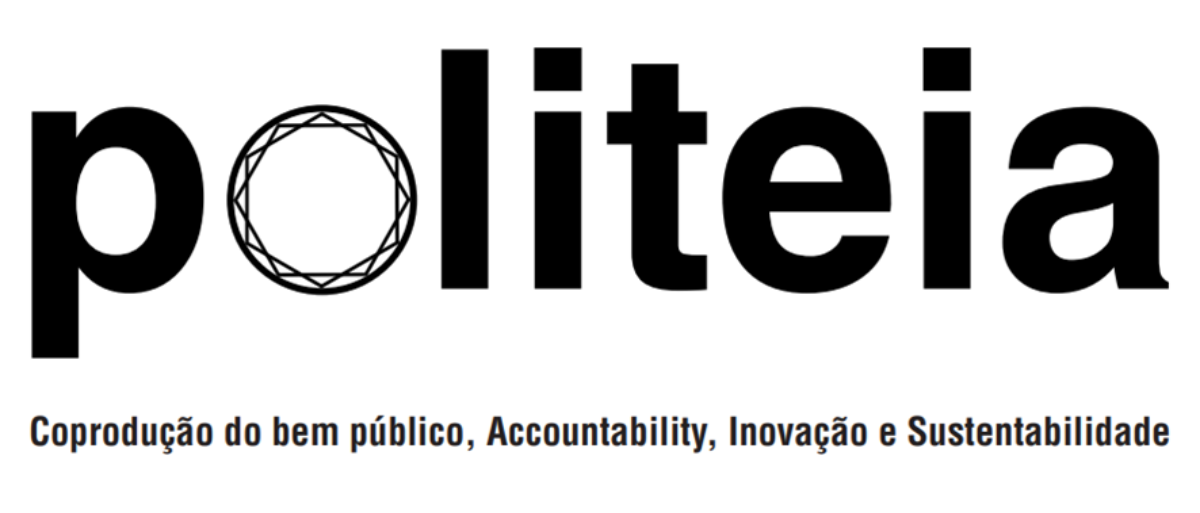|
CALL FOR PAPERS – SPECIAL ISSUE SOCIAL INNOVATION: Researching, defining and theorizing social innovation
RAM – Revista de Administração Mackenzie
Authors can submit papers online to “Social Innovation” section at
http://editorarevistas.mackenzie.br/index.php/RAM/about/submissions#onlineSubmissions
– At IDIOMA, select English.
See main page of RAM at:
http://editorarevistas.mackenzie.br/index.php/RAM/index
Lançamento da VII edição do IRBEM – Rede Nossa São Paulo
Lançado anualmente às vésperas do aniversário de São Paulo, o levantamento aborda temas que envolvem tanto aspectos subjetivos, como sexualidade, espiritualidade, consumo e lazer, quanto os que tratam das condições objetivas de vida nas áreas de saúde, educação, meio ambiente, habitação e trabalho.
A pesquisa de percepção apresentará ainda, pelo nono ano consecutivo, a avaliação dos moradores da cidade sobre as instituições (Prefeitura, Câmara Municipal, Polícia Militar, Tribunal de Contas, Poder Judiciário etc.) e os serviços públicos.
A atividade contará com a participação de lideranças sociais e representantes do poder público. O prefeito de São Paulo, Fernando Haddad, foi convidado para participar do evento, que é gratuito e aberto ao público.
Os principais pré-candidatos à Prefeitura de São Paulo também foram convidados para o lançamento da pesquisa.
Serviço:
Lançamento da 7ª edição da pesquisa IRBEM
Data: dia 19 de janeiro, terça-feira
Horário: 9h30 às 12h30
Local: Teatro Raul Cortez – na FecomercioSP
Endereço: Rua Doutor Plínio Barreto, 285 – Bela Vista
Importante: Vagas limitadas à lotação do teatro.
Inscreva-se no link http://www.fecomercio.com.br/EventosInscricao/Get/14736
First step guidance for active participation in the changing process of the extractive industry
Public sector innovation through collaboration: opportunity for PhD Candidates
- The research group ‘Public Administration & Management’ (Prof. dr. Koen Verhoest – University of Antwerp, Department of Political Sciences) is looking for a doctoral researcher to analyse how collaboration by public organizations within and across governmental levels can lead to innovations in policy and service delivery, and how a government can facilitate, govern and improve such collaborative arrangements. Link to vacancy – deadline 22 January 2016:
https://www.uantwerpen.be/nl/jobs/vacatures/ap/ 2015bapfswef316/ - The ‘Public Governance Institute’ (Prof. dr. Trui Steen – KULeuven) is looking for a doctoral researcher to analyse how coproduction with external stakeholders (citizens, non-profit organizations, companies) can lead to innovations in policy and service delivery, and which organizational conditions are crucial for governments to facilitate this. Link to vacancy – deadline 22 January 2016: https://icts.kuleuven.be/apps/
jobsite/vacatures/53584419 - The research group ‘Centre Montesquieu d’étude de l’action publique’ (Prof.dr. David Aubin – ‘Université catholique de Louvain (UCL), Institut de sciences politiques Louvain-Europe’) is looking for a doctoral researcher to analyse how the individual policy officers and public managers behave and learn in collaborative arrangements, and how their skills and attitudes can stimulate innovation in policy and service delivery in such arrangements. Link to vacancy – deadline 11 January 2016: https://www.uclouvain.be/
481550.html
Call for papers for the IIAS Study Group on ‘Coproduction of Public Services’
Call for papers for the IIAS Study Group on ‘Coproduction of Public Services’
Chamada aberta: programa da OEA para promoção de governos abertos nas Américas
La Organización de los Estados Americanos (OEA) ha lanzado la segunda edición del “Programa OEA para la Promoción de Gobiernos Abiertos en las Américas” (conocido en inglés como The OAS Fellowship on Open Government in the Americas), que se enmarca dentro de los distintos esfuerzos que vienen realizando los países y la comunidad internacional para implementar prácticas de Gobierno Abierto en la región.
El objetivo de este programa es crear una red de jóvenes agentes de cambio que reúna a la siguiente generación de líderes de toda la región, ofreciéndoles un espacio para la reflexión, el debate y el intercambio de conocimientos y experiencias en temas de Gobierno Abierto. Desde una orientación multidisciplinaria e integradora, la red vinculará a participantes provenientes de la esfera pública, del sector privado y de la sociedad civil, con el fin de que generen propuestas innovadoras para abordar los actuales desafíos que enfrenta la región.
Para llevar a cabo esta iniciativa, se han formado alianzas estratégicas con varios socios que comparten los objetivos de la OEA de impulsar y reforzar las prácticas de Gobierno Abierto en la región, entre ellos: Open Society Foundations, los Gobiernos de Corea del Sur y Países Bajos, la Comisión Económica para América Latina y el Caribe (CEPAL), la Fundación AVINA, el Centro Carter, y la Konrad Adenauer Stiftung, quienes contribuirán técnica, logística y financieramente al Fellowship. Estamos agradecidos de contar con el apoyo de dichos actores y convencidos de que el trabajo conjunto nos permitirá lograr sinergia de esfuerzos, un mayor alcance del programa y mejores resultados.
- Fonte: http://www.oas.org/es/sap/dgpe/OpenGovFellowship/
- El plazo de aplicación para la segunda edición del Fellowship se inicia el día 10 de diciembre de 2015 y finaliza a las 23:59 hs. (horario de Washington, DC) del 31 de enero de 2016.
- ¿Cómo aplicar al programa?
- http://www.oas.org/es/sap/dgpe/OpenGovFellowship/










